
Alright, listen up, history buffs and pop culture fanatics! Ever wonder if you truly have a handle on one of the most transformative, tumultuous, and totally groovy decades in modern history? We’re talking about the 1970s, baby! Often called the ‘Seventies’ or the ”70s’, this period from January 1, 1970, to December 31, 1979, was absolutely jam-packed with moments that changed the world forever. From groundbreaking scientific discoveries to intense political shake-ups and cultural revolutions, the ’70s left an indelible mark on everything that came after it.
Historians in the 21st century have even started calling the 1970s a ‘pivot of change’ in world history, highlighting the massive economic upheavals that kicked off right after the post-war boom ended. On a global scale, it was a wild ride, characterized by a flurry of coups, domestic conflicts, and civil wars. Think about it: decolonization was reshaping the map, and the global struggle between NATO, the Warsaw Pact, and the Non-Aligned Movement was playing out in real-time, leading to high-intensity conflicts in places like Southeast Asia, the Middle East, Latin America, and Africa. Seriously, this decade was anything but boring!
So, are you ready to put your knowledge to the ultimate test? We’ve gathered some of the most pivotal and mind-blowing moments from this incredible decade, framed as if they were straight out of a ‘Jeopardy’ category. No pressure, but let’s see how well you can recall the iconic events that shaped the world we live in today. Get ready to dive deep into the ’70s and see if you’re a true history whiz!
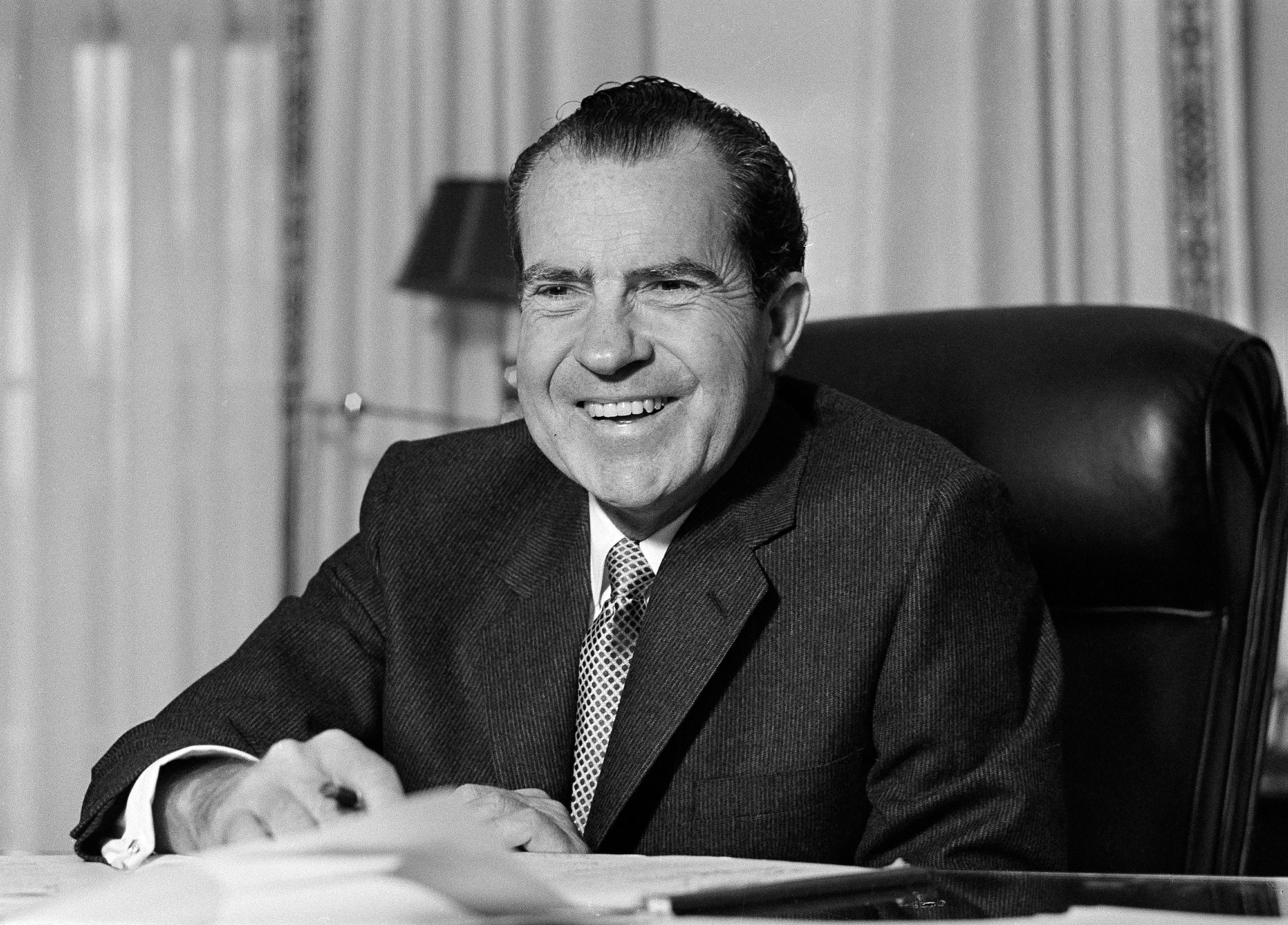
1. **Nixon’s Historic Resignation Amidst Scandal**Ah, the early ’70s! The United States was in the thick of a political drama that captivated the entire nation, and honestly, the world. We’re talking, of course, about the infamous Watergate scandal, a saga that unfolded with twists and turns worthy of a prime-time series. It was a time when political tensions were high, and the public’s trust in government was truly put to the test.
This incredible period reached its dramatic climax when United States President Richard Nixon, facing the very real prospect of impeachment, made a monumental decision. On August 9, 1974, he resigned from his office. Imagine the headlines! This was an absolutely unprecedented moment in American presidential history, marking a profound shift in the political landscape and setting a precedent for accountability at the highest levels of power.
Nixon’s departure was visually capped off by him famously displaying the V-for-victory sign as he left the White House, a moment etched into the collective memory of the decade. This event wasn’t just a political footnote; it was a defining moment of the ’70s, symbolizing a period of intense scrutiny on political power and a widespread demand for transparency. It’s safe to say, the fallout from Watergate continued to reverberate through American politics for years to come, shaping how citizens viewed their leaders and institutions.
Read more about: 12 ’70s Power Players & Pivots: The Dominant Forces That Shaped a Decade, Then Disappeared or Transformed!
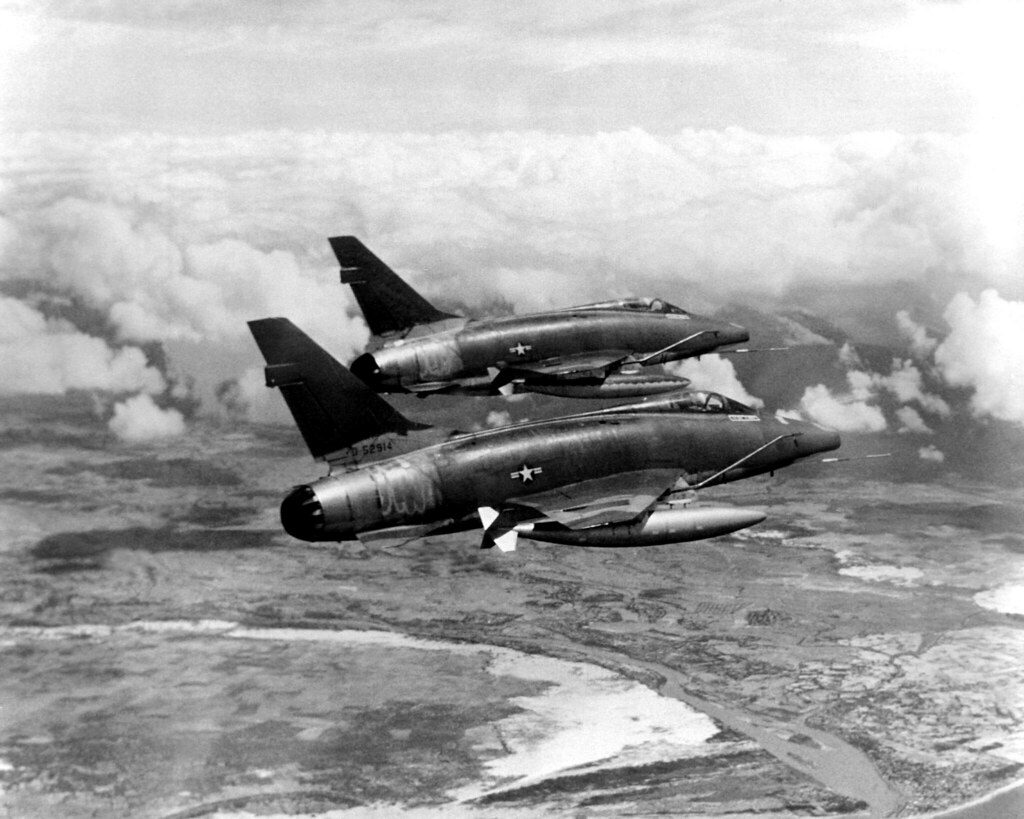
2. **The End of a Divisive War in Vietnam**The early 1970s saw the United States still heavily entangled in the prolonged and increasingly unpopular Vietnam War. This conflict had been a major source of division and protest at home, creating deep rifts within society. As the decade progressed, a growing sense of disillusionment and a clamor for withdrawal began to dominate public discourse, pressuring policymakers to find a way out.
A pivotal moment arrived when The New York Times bravely leaked information regarding the nation’s involvement in the war, fueling public debate and intensifying calls for peace. This, combined with mounting political pressure, ultimately led to America’s withdrawal from the conflict in 1973. It was a complex and emotionally charged period, as the long chapter of American military involvement in Southeast Asia began to draw to a close.
The final, defining moment of the war occurred with the dramatic Fall of Saigon in 1975, leading to urgent evacuations of South Vietnamese people that very same year. On April 30, 1975, the Vietnam War officially concluded with the unconditional surrender of South Vietnam. The following year, Vietnam was formally declared reunited, bringing an end to a conflict that had profoundly shaped the geopolitical landscape and impacted millions of lives, both in Southeast Asia and beyond.
Read more about: America’s Unfolding Story: A Deep Dive into the Foundational Shifts and Enduring Legacies That Reshape a Nation
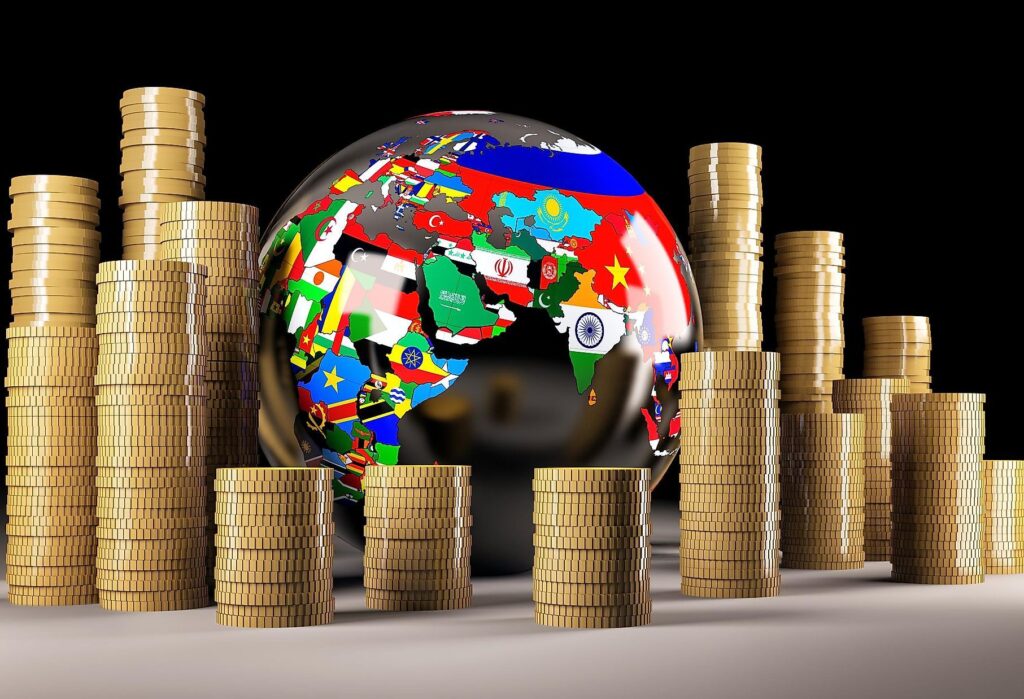
3. **The Global Economic Shock of the Oil Crisis**Talk about a ripple effect! The 1970s threw a major curveball at the global economy in 1973 with an oil crisis that caused a massive financial squeeze throughout the developed world. This wasn’t just a minor blip; it was a game-changer that exposed the world’s reliance on a single commodity and triggered widespread economic instability, leaving many scrambling to adapt to the new realities.
The crisis was directly sparked by oil embargoes enacted by the Organization of Arab Petroleum Exporting Countries (OPEC). Industrialized countries felt the heat almost immediately, diving headfirst into an economic recession. Suddenly, everything from everyday commutes to industrial production was impacted, and people everywhere had to rethink their energy consumption habits and long-term economic strategies.
What made this crisis particularly noteworthy was that it introduced the world to an economic phenomenon known as stagflation – a truly tricky combination of economic stagnation, high inflation, and high unemployment. This challenging environment began to usher in a significant political and economic shift: the replacement of traditional Keynesian economic theory with neoliberal economic theory. In fact, one of the earliest instances of a neoliberal government coming to power was seen with the 1973 Chilean coup d’état, highlighting the profound and far-reaching impacts of this energy crisis.
Read more about: Titans of Transformation: Exploring 11 Defining Moments That Steered the World Through the Turbulent 1970s

4. **A Landmark Peace Agreement: The Camp David Accords**Amidst the backdrop of global tensions, the late 1970s brought forth a beacon of hope for peace in a historically volatile region. In 1978, a truly momentous event unfolded as the leaders of Israel and Egypt came together to shake hands, sealing what would become known as the Camp David Accords. This wasn’t just any handshake; it was a powerful symbol of a profound shift in Middle Eastern diplomacy, promising a new chapter for the deeply entrenched Arab-Israeli conflict.
The Accords were signed on September 17, 1978, and they paved the way directly for the 1979 Egypt–Israel peace treaty. This treaty was monumental, effectively ending outstanding disputes between the two countries that had simmered for decades and often erupted into outright conflict. It demonstrated that dialogue and negotiation, even in the most challenging circumstances, could lead to tangible results and a path towards a more peaceful future.
In recognition of their courageous and groundbreaking efforts to forge peace, the leaders involved, Egyptian President Anwar Sadat and Israeli Prime Minister Menachem Begin, were jointly awarded the 1978 Nobel Peace Prize. Their actions, however, were not without significant personal risk; tragically, Sadat’s bold move to make peace with Israel would later lead to his assassination in 1981, underscoring the immense stakes involved in challenging the status quo and pursuing reconciliation in such a complex region.

5. **The Transformative Iranian Revolution of 1979**Just as the 1970s were drawing to a close, the world witnessed another seismic shift, this time in the Middle East, with the Iranian Revolution of 1979. This wasn’t just a change in leadership; it was a complete societal overhaul that reshaped Iran from an autocratic pro-Western monarchy under Shah Mohammad Reza Pahlavi into a theocratic Islamist government led by the charismatic Ayatollah Ruhollah Khomeini. Talk about a geopolitical earthquake!
Political tensions in Iran had been simmering for some time, reaching a boiling point and ultimately exploding into a full-blown revolution. The overthrow of the Pahlavi dynasty and the establishment of an Islamic republic sent shockwaves across the globe, immediately altering the balance of power in the region and introducing a new ideological force onto the world stage. It was a moment that underscored the power of popular movements to fundamentally alter a nation’s trajectory.
The newfound distrust between the revolutionaries and Western powers quickly escalated, leading to the infamous Iran hostage crisis. On November 4, 1979, 66 diplomats, most notably from the United States, were taken captive and held for an astonishing 444 days. This crisis became a potent symbol of the new Iran’s stance against Western influence and its determination to chart an independent course, further solidifying the revolution’s far-reaching international impact and leaving a lasting legacy of diplomatic tension.
Read more about: Titans of Transformation: Exploring 11 Defining Moments That Steered the World Through the Turbulent 1970s

6. **The Dawn of the Digital Age with Microprocessors**Before smartphones and laptops were even a twinkle in anyone’s eye, the 1970s was quietly laying the groundwork for the digital revolution that would define future decades. This era was a hotbed of technological and scientific advances, fundamentally altering how we interacted with machines. Seriously, the ’70s were more than just disco balls and bell-bottoms; they were about pioneering the future!
The real game-changer arrived in 1971 with the appearance of the first commercial microprocessor, the Intel 4004. This tiny yet mighty invention kicked off a profound transformation in computing units. Prior to this, computers were often described as rudimentary, spacious machines, typically relegated to massive labs or corporate mainframes. They were formidable, complex beasts, far from accessible to the average person.
However, the microprocessor began to pull computing out of those expansive rooms and into a new realm: portability and home accessibility. While true home computers were still some years away for most, this innovation set the stage for personal computing as we know it today. It was the spark that ignited the entire personal electronics industry, making the idea of having powerful computing capabilities right at our fingertips a tangible, rather than a fantastical, possibility. The ’70s truly ushered in the initial steps of the information age, proving that small chips could indeed have a monumental impact.
Read more about: Remember the ’70s? These 12 Iconic Moments & Movements Defined a Decade of Unforgettable Change!

7. **Cambodia’s Tragic Years Under the Khmer Rouge**The mid-1970s brought forth a chilling and heartbreaking chapter in human history in Cambodia. The Cambodian Civil War, which had been simmering for years, finally ended in 1975 when the communist Khmer Rouge, under the leadership of Pol Pot, established Democratic Kampuchea. On April 17, 1975, Pot’s forces captured Phnom Penh, the capital, marking a dark turning point for the nation, just two years after America had halted the bombings of their positions.
What followed was a brutal and terrifying period known as the Cambodian genocide. Pol Pot’s communist government forced people out of the cities, compelling them to clear jungles and establish a radical, Marxist agrarian society. This extreme ideology led to unimaginable suffering and loss of life. The regime ruthlessly targeted perceived enemies, including Buddhist priests and monks, anyone who spoke foreign languages, those with any form of education, or even individuals who wore glasses, torturing or killing them.
Between 1975 and 1979, the Khmer Rouge carried out atrocities that resulted in a catastrophic death toll, with as many as 3 million people potentially perishing during this horrific period. The nightmare finally began to end when Vietnam invaded the country at the start of 1979, overthrowing the Khmer Rouge and installing a satellite government. This intervention, however, provoked a brief but furious border war with China in February of that same year, further highlighting the complex geopolitical ramifications of the Cambodian tragedy. The scale of the human suffering remains one of the most sobering legacies of the ’70s.
Ready for round two, history sleuths? If you thought the early ’70s were a rollercoaster, buckle up because the latter half of this iconic decade brought even more twists, turns, and jaw-dropping moments that continued to reshape our world. We’re diving deep into the cultural shifts, the technological leaps that kept on coming, and some truly unforgettable tragedies that rocked the globe. From disco beats to political upheavals, the ’70s just kept delivering!
Let’s see if your brain remembers these monumental milestones that happened as the decade barreled towards its close. Get ready to face another set of ‘Jeopardy’ questions that will really put your knowledge of pop culture, global politics, and human resilience to the ultimate test. No sweat, right? You got this!
Read more about: Titans of Transformation: Exploring 11 Defining Moments That Steered the World Through the Turbulent 1970s
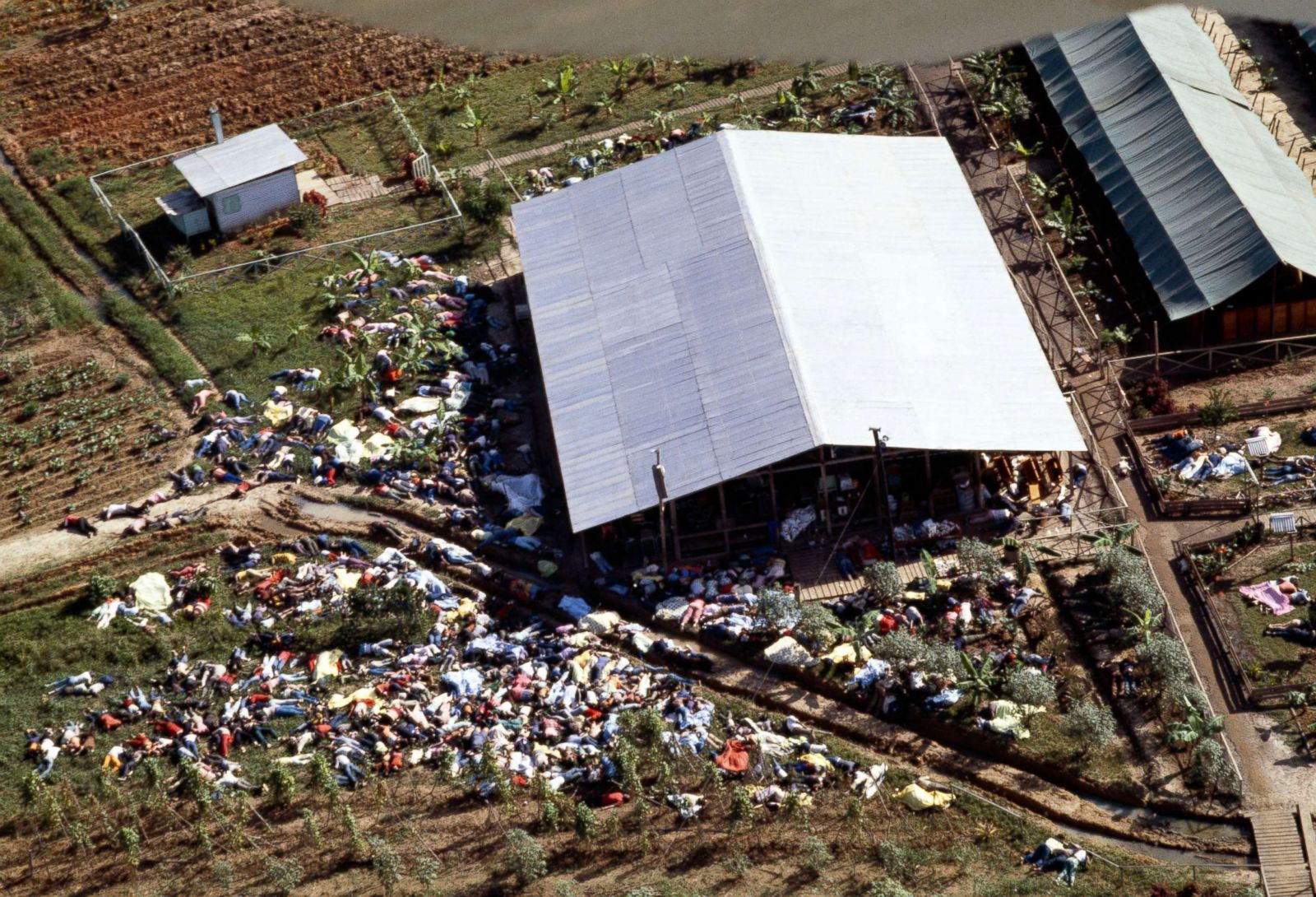
8. **The Jonestown Massacre: A Tragic End in the Jungle**In the late 1970s, a chilling and heartbreaking tragedy unfolded deep in the Guyanese jungle, leaving an indelible scar on the decade’s memory. This was the story of the People’s Temple, a utopian Marxist commune led by the charismatic, yet deeply troubled, Rev. Jim Jones. He had moved several hundred of his followers from California to establish this isolated settlement known as Jonestown, promising a new way of life far from the perceived evils of the outside world.
As time went on, disturbing allegations began to surface regarding corruption, as well as mental, ual, and physical abuse perpetrated by Jones against his followers. Whispers of denied freedoms, including the right to leave Jonestown, reached the ears of the outside world, prompting a Congressional committee and a team of journalists to visit Guyana in November 1978 to investigate these alarming claims. It was a mission fraught with tension and a desperate search for answers.
However, this investigative visit took a horrific turn. As the visitors, along with several individuals attempting to leave Jonestown, prepared to depart Guyana, they were tragically attacked and shot by Jones’ guards at the airport. Among those senselessly killed was Congressman Leo Ryan, a pivotal figure in the investigation. The immediate aftermath plunged Jonestown into an even darker abyss.
In a horrifying climax, a demented Jim Jones then ordered everyone in the commune to commit suicide. People tragically drank, or were forced to drink, cyanide-laced fruit punch, in a moment of unspeakable horror. The final count revealed over 900 dead, including Jones himself who died from a self-inflicted gunshot wound, with approximately one-third of the victims being innocent children. It was a tragedy of immense scale, requiring multiple units of the United States military to be mobilized for the grim task of recovering the deceased residents and transporting them back to the USA after rejections from the Guyanese Government to bury them locally. This profoundly dark event served as a stark reminder of the dangers of unchecked power and the vulnerability of those seeking refuge.
Read more about: 12 ’70s Game-Changers That Honestly Just Didn’t Age Well (Brace Yourself for the Aftermath!)
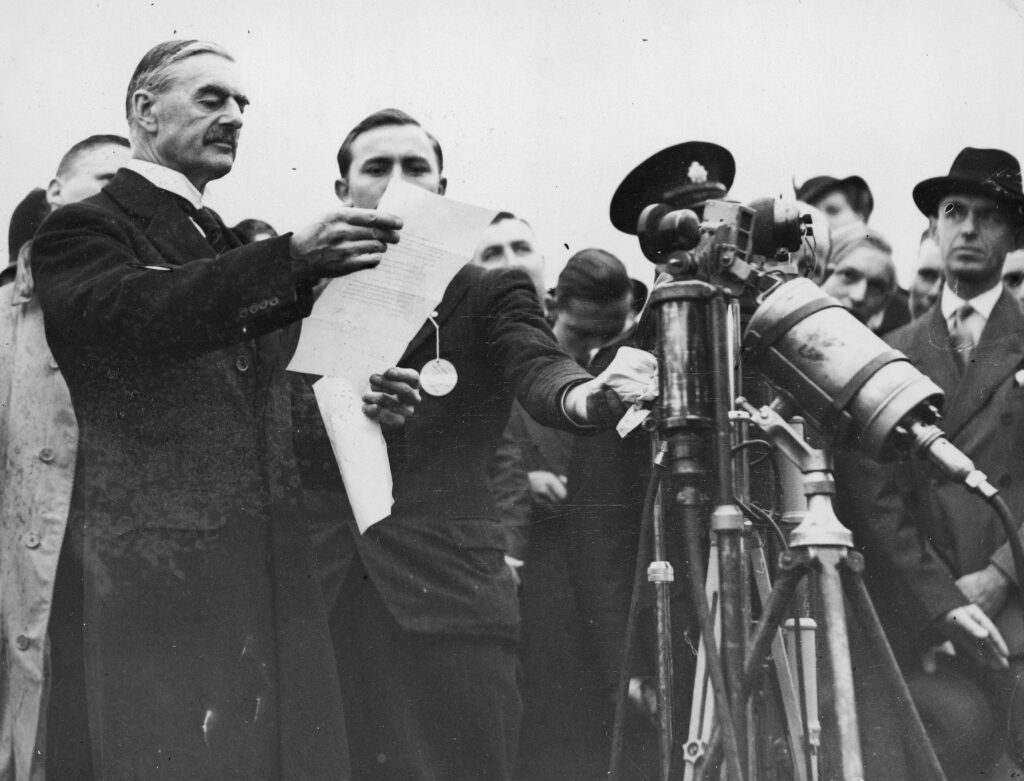
9. **The Munich Olympics Tragedy: Global Terror on the World Stage**Back in 1972, the Summer Olympics in Munich, Germany, were supposed to be a shining beacon of international unity and athletic prowess. Athletes from across the globe gathered, embodying the spirit of competition and camaraderie, making it a moment of collective excitement. Everyone was tuned in, soaking up the joy and striving for excellence.
But then, the unthinkable happened. In a shocking act that brought the world to a terrified standstill, Palestinian terrorists belonging to the Black September organization infiltrated the Olympic Village. Their target: Israeli athletes, who were kidnapped in a horrifying hostage situation that gripped the entire world. The games, a symbol of peace, were abruptly overshadowed by terror.
The crisis culminated in a brutal and tragic outcome. Eleven Israeli athletes and officials, along with a West German police officer, were murdered during the ordeal. The sheer brutality of the act sent shockwaves across continents, shattering the illusion of safety at such a high-profile international event and forcing a painful reckoning with the escalating threat of global terrorism.
The Munich massacre became a grim milestone, marking a devastating turning point in the history of global sports and international security. It forced nations to re-evaluate their preparedness for such acts, leading to significant changes in security protocols for major events worldwide. The world mourned, and the memory of the eleven lives lost at the hands of terror became a somber reminder of the vulnerabilities of a world increasingly grappling with organized violence.

10. **Disco Fever Takes Over: The Beat That Defined a Decade**Alright, enough with the heavy stuff for a moment! Let’s talk about the absolute explosion of pure joy, glitter, and undeniable rhythm that totally captured the hearts and dance floors of the mid-to-late 1970s. We’re talking about disco, baby! This wasn’t just a music genre; it was a full-blown subculture, a way of life, and the defining beat of a generation that just wanted to get down and boogie.
From bustling urban clubs to living rooms around the world, disco dominated the airwaves and nightlife. Think sequined outfits, platform shoes, mirror balls, and those iconic flared pants—it was all about glamour, self-expression, and a carefree attitude. The popularity of the disco music genre and its vibrant subculture truly peaked during this electrifying period, turning every night into a potential party.
More than just a party, disco reflected some of the changing social vibes of the era. It emerged as a space for diverse communities, offering a sense of liberation and acceptance on the dance floor. In a decade marked by so much upheaval, disco offered an escape, a place where people could come together, express themselves, and just let loose, embracing a more inclusive and egalitarian society through the power of rhythm. It was a musical revolution that truly captured the zeitgeist of seeking urban prosperity and interaction amidst evolving social norms.
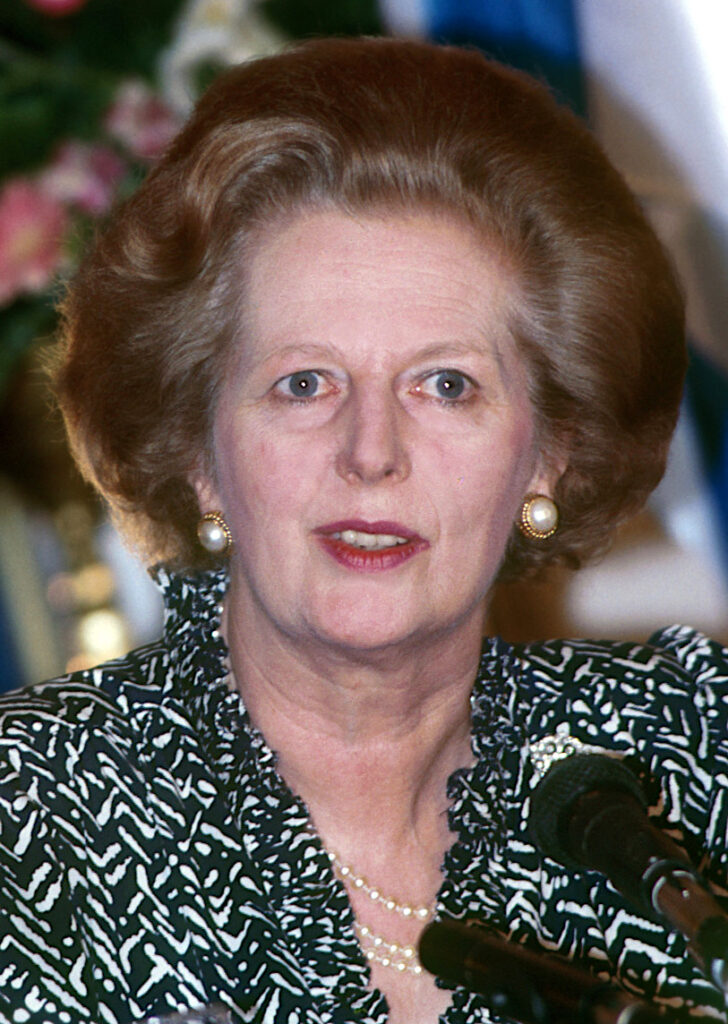
11. **Margaret Thatcher’s Ascent: Britain’s Iron Lady Reshapes the Future**As the 1970s drew to a close, a monumental political shift occurred across the pond that would send ripples through global economics and politics for decades to come. In 1979, the United Kingdom elected its very first female Prime Minister, the formidable Margaret Thatcher. Her victory, leading the Conservative party, was not just a win for her party, but a groundbreaking moment for women in political leadership worldwide, signaling an era of increasing political awareness and economic liberty for women.
Thatcher wasted no time in initiating a bold new direction for Britain, ushering in a set of neoliberal economic policies. Her agenda was clear: reduce government spending, reign in the power of trade unions, and champion economic and trade liberalization. It was a stark departure from previous approaches, promising to shake up the established order and redefine the role of the state in the economy.
Her rise to power and the policies she implemented were a vivid example of a broader political and economic trend that began to take hold in the ’70s: the gradual replacement of traditional Keynesian economic theory with neoliberal economic theory. Her government, along with others like the one that came to power after the 1973 Chilean coup d’état, marked a significant pivot point, demonstrating a global shift towards market-oriented approaches and a more hands-off government intervention in the economy. This powerful woman truly made her mark, proving that the ’70s weren’t just about cultural shifts, but profound ideological transformations too.

12. **The Soviet Invasion of Afghanistan: End of Détente and a New Cold War Front**For much of the 1970s, the world had seen a relative cooling of superpower tensions. The bellicose confrontations that defined the 1950s and ’60s between the United States and the Soviet Union had given way to a policy known as détente. This period promoted the hopeful idea that global problems could be resolved through negotiation and dialogue, moving away from the brink of nuclear war. Both countries even endorsed nuclear nonproliferation, aiming for a safer, more stable world.
However, this delicate balance was shattered dramatically at the very end of the decade. On December 27, 1979, the Soviet Union launched a full-scale invasion of Afghanistan. This sudden and aggressive move abruptly ended the era of détente, plunging the world back into heightened Cold War anxieties and setting the stage for one of the most significant conflicts of the following decade.
The Soviet invasion wasn’t just a regional conflict; it was a global flashpoint that ignited a new phase of the US-Soviet geopolitical rivalry. While the superpowers had been jockeying for influence in smaller countries through indirect means throughout the ’70s, this overt military action presented a direct challenge. It led to the Soviet-Afghan War, fueled by American and Soviet intelligence agencies supporting opposing sides, and further solidified a world increasingly polarized between the two dominant global powers, leaving a lasting legacy of conflict and geopolitical tension.
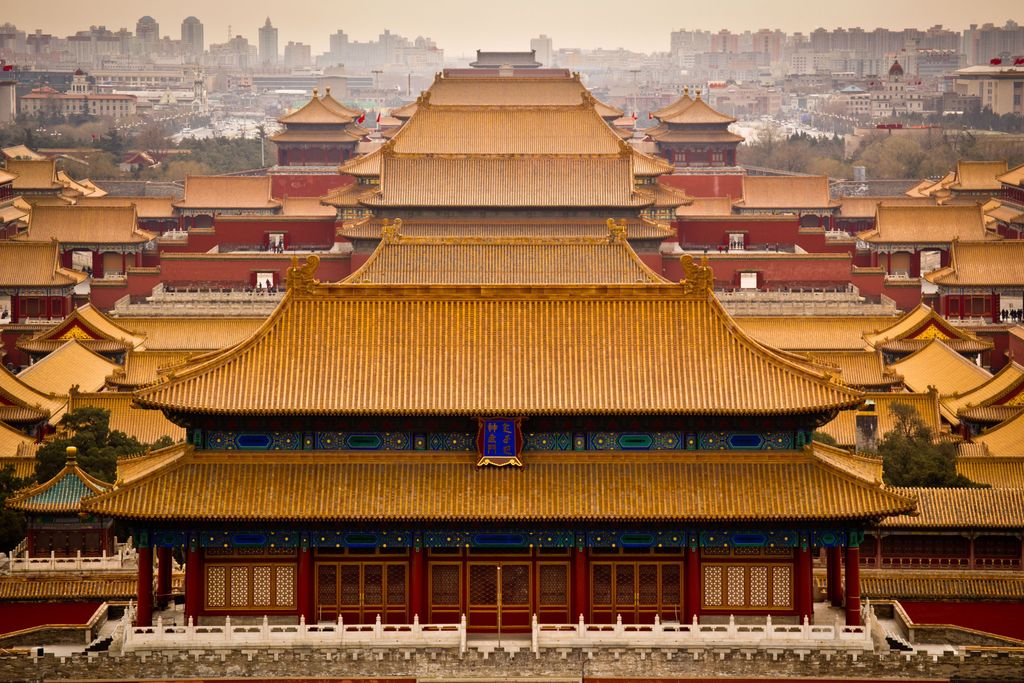
13. **China’s Great Leap Forward (into Market Economics): Post-Mao Era Begins**The 1970s were a period of monumental transformation for the People’s Republic of China, culminating in changes that would redefine its global role for generations. While President Richard Nixon’s historic visit in 1972 had begun to thaw relations with the US, the true internal shift began to accelerate in the latter half of the decade, reshaping the very fabric of Chinese society and its international standing.
A pivotal year arrived in 1976 with the deaths of both Mao Zedong and Zhou Enlai, marking the symbolic end of the Cultural Revolution, a tumultuous period that had profoundly impacted China. After a brief period under Mao’s chosen successor, a pragmatic and visionary leader named Deng Xiaoping emerged as China’s paramount leader. His rise signaled a radical new direction for the country, moving it away from ideologically driven policies and towards a more open, market-oriented economy.
Deng’s leadership initiated what would become an economic revolution, shifting the country towards market economics. This wasn’t just a tweak; it was a fundamental overhaul that would ultimately transform China into a global economic powerhouse. His commitment to opening up China was underscored by his own visit to the United States in 1979, further cementing the restored relations that had begun with Nixon’s earlier visits and signaling China’s intent to engage with the wider world.
This dramatic pivot didn’t just impact China; it sent shockwaves across Asia and the rest of the world. It showed how a nation, even one with a long history of centralized control, could embark on a path of unprecedented economic reform. The 1970s truly were the launchpad for China’s modern trajectory, demonstrating the profound influence of leadership changes on a nation’s destiny and the global balance of power.
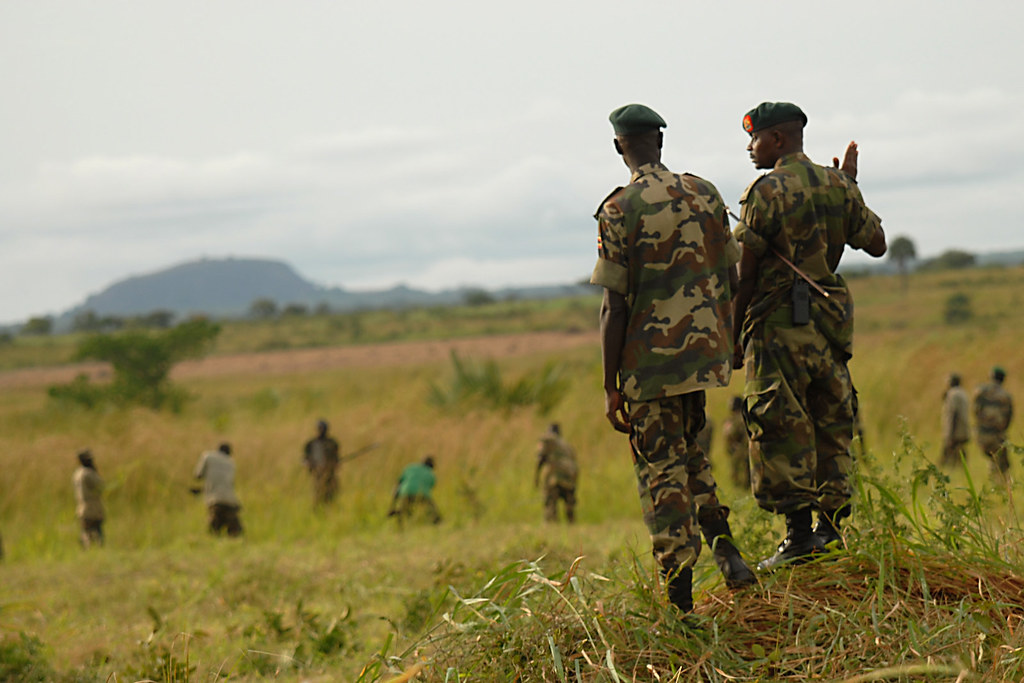
14. **Idi Amin’s Downfall: End of a Brutal Reign in Uganda**In the tapestry of the 1970s, Africa experienced its own dramatic shifts, including the end of one of the continent’s most brutal dictatorships. Idi Amin, who had seized power in Uganda in a 1971 military coup, ruled with an iron fist until 1979. His regime became infamous for its widespread human rights abuses, persecution of political opposition, and a chillingly racist agenda that saw the expulsion of Asians, particularly Indians, from Uganda.
Amin’s ambition, however, wasn’t limited to internal oppression. In 1978, in an alliance with Libya, he initiated the Ugandan-Tanzanian War, driven by an expansionist agenda to annex territory from Tanzania. This audacious move proved to be his undoing, as the conflict escalated beyond his control, revealing the limits of his military might and the vulnerability of his tyrannical rule.
The war ultimately led to Uganda’s defeat and, critically, to Amin’s overthrow in 1979. His brutal regime collapsed, bringing an end to nearly a decade of terror for the Ugandan people. This moment of liberation underscored the complexities of decolonization and the persistent challenges of civil wars and coups that plagued many African nations throughout the decade. Amin’s downfall was a stark reminder that even the most entrenched dictatorships could eventually crumble under the weight of their own brutality and external pressures, closing a turbulent chapter in African history as the ’70s drew to a close.
Whew! We made it through the ’70s, you magnificent memory moguls! From the somber echoes of tragic events to the glittering, infectious beat of disco, and the tectonic shifts in global power, this decade truly delivered a masterclass in change. The ’70s weren’t just a bridge between the tumultuous ’60s and the rising ’80s; they were a powerhouse of transformation, setting the stage for so much of what we experience today. So, how did you do on our ‘Jeopardy’ challenge? Whether you nailed every answer or just got a groovy refresh, you’ve definitely taken a wild ride through a decade that refused to be forgotten. Keep those history smarts sharp, because the past always has something new to teach us!



